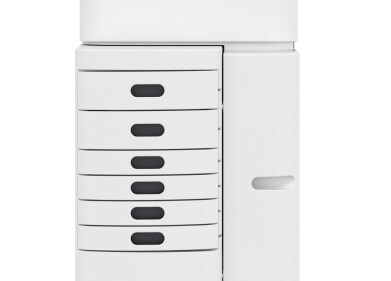Laboratory Products
How to Work Towards Your Lab's First Grant
Sep 27 2022
From health and humanities to enviromental research and aerospace, laboratories around the world are heavily reliant on funding. Cash injections from organisations like the National Institutes of Health (NIH) in the USA, UK Research and Innovation (UKRI) and Medical Research Future Fund (MRFF) in Australia help get laboratories off the ground and support critical research.
Want to know more about how to secure your lab’s first grant?
Put together a clearcut and realistic budget
While science is front and centre when setting up a laboratory, budgeting is also important. Potential benefactors want to see proof a good amount of thought has gone into the planning process. Your final budget should factor in supplies, instruments and other equipment. Staff salaries are also important and usually absorb around 80% of funds.
Edward Giniger, a researcher at the National Institute of Neurological Disorders and Stroke (NINDS), says a rough budget is essential. “I determine my budget first. Then I propose a coherent set of experiments that fit the budget,” he says.
As well as convincing decision makers the laboratory deserves to receive funding, a budget-first approach helps keep expectations realistic. Ultimately, your budget should match the scale and scope of your proposed work.
If your budget is too low, panels may criticise you for being too ambitious. Many grant applications are turned down because panels feel expectations are unrealistic, relative to the proposed budget. At the other end of the scale are budgets that are too high. Requesting too much funding suggests the laboratory will waste funds that could be spent elsewhere. Overestimating your budget is especially dangerous in highly competitive industries where grants are in high demand.
Jonathan Graves, an assistant professor of immunology at the University of Washington in Seattle, warns “the grant situation today is so competitive. There is an element of feeling like you're bidding for a construction project with the lowest bid getting awarded the grant. You must strike a difficult balance between what is appropriate and what is competitive.”
The art of storytelling
In an article published in the journal Molecular Biology of the Cell, author Jonathan Chernoff covers several techniques to secure funding and maintain support. “While one might think that an applicant’s stellar reputation, brilliant ideas, and tantalising preliminary data would guarantee abundant funding, sadly, such is not always the case,” writes Chernoff in a tongue-in-cheek tone. One tip he covers is the value of storytelling when applying for research grants.
“This point has been stressed by others, but can hardly be overemphasised,” writes Chernoff. “For reasons perhaps best understood by cognitive scientists, humans respond better to stories than to facts and figures, however artfully arranged. You should use that trait to your advantage by crafting your proposal as a tale of wonder.”
For more detailed information about how to budget, source funding and set your facility up for success, don’t miss ‘How to Start a Research Lab - All Bases Covered’.
Digital Edition
Lab Asia 31.2 April 2024
April 2024
In This Edition Chromatography Articles - Approaches to troubleshooting an SPE method for the analysis of oligonucleotides (pt i) - High-precision liquid flow processes demand full fluidic c...
View all digital editions
Events
Apr 24 2024 Jakarta, Indonesia
Apr 25 2024 Istanbul, Turkey
Apr 28 2024 Montreal, Quebec, Canada
May 05 2024 Seville, Spain
InformEx Zone at CPhl North America
May 07 2024 Pennsylvania, PA, USA


















